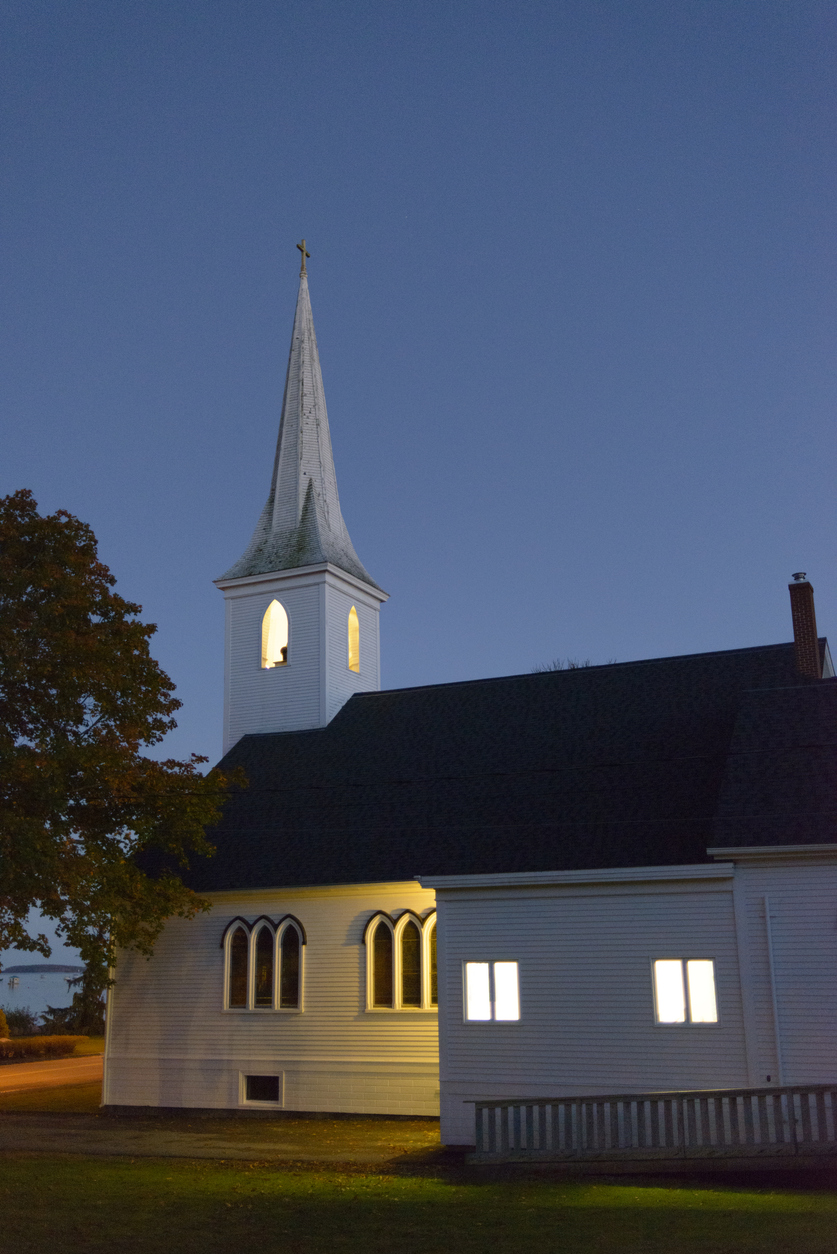Early in our marriage, my wife and I were invited to an extended family gathering on a Sunday evening. We indicated that we go to worship on Sunday night, to which a cousin replied incredulously, “Do you have to go twice?” I believe that question is a snapshot of the thinking across the evangelical landscape including the PCA. If my Presbytery were taken as a sample, only 20% of the congregations have regular evening worship.
While abandoning the evening service has become the norm, one must ask, “Is this best?” Elders have the responsibility and privilege of shepherding the souls of the saints to glory. Paul tells us that our abounding love filled with knowledge and discernment should “approve what is excellent” or “what are the superior things” that we might be filled with the fruit of righteousness (Phil 1:9-11). So, is evening worship bestfor the church?
To answer this question, we need to understand what is so special about corporate worship that two services would be better than one? The Scriptures teach that the Lord is specially present when his people gather (Matt. 18:20). We are the temple of His dwelling (1 Cor. 3:16). As we worship, Jesus himself is leading us in song (Heb. 2:11-12). Jesus himself is speaking to us through the preacher (Rom. 10:14-17; Eph. 2:17). On top of that, in worship we are uniquely entering the Jerusalem above, mingling our voices with the angelic host and the spirits of righteous men made perfect, and drawing near to Jesus (Heb. 12:22-24). Hence, the Psalmist was right to say “a day in your courts is better than a thousand elsewhere” (Ps 84:10). It is in the courts of the Lord, near to his presence, that he “bestows favor” and withholds no good thing from those who walk uprightly (Ps 84:11).
The Lord promises to bestow good things upon the faithful in corporate worship. He gives himself through his means of grace. In the word, sacraments, and prayer, the Lord communicates to us the benefits of his redemption, and the Spirit especially uses the word preached to build up believers in the faith (See WSC #88-89). Faith comes by hearing and hearing through the word of Christ (Rom 10:17). So, if we want to put muscle on our faith, we need more preaching not less. Peter likewise says, “Like newborn infants, long for the pure spiritual milk, that by it you may grow up in salvation” (1 Pet 2:2). In context, that “pure spiritual milk” is the word preached (1 Pet 1:22-25). Through the preached word we are strengthened (Rom 16:25), being saved (1 Cor 1:18), hearing unimaginable things concerning the depths of God (1 Cor 2:6-10), and being equipped for the work of ministry (Eph 4:12).
Will one service strengthen our faith? Sure! Will a morning service feed our souls with spiritual milk? Absolutely! But a second service, whereby Christ and his glories are set before us, provides even more food to fatten the sheep. In addition, the evening service gives more opportunity to hear the “whole counsel of God.” More Scripture will be read, more texts expounded, and thereby the believer’s exposure to the sweetness of Christ in all the word will be greater.
Another benefit of an evening service is helping the congregation keep the Lord’s Day. The whole day, not merely an hour in the morning, belongs to the Lord (Is 58:13). So, when we frame the Lord’s Day with morning and evening worship, we help God’s people maintain the purpose of the day: worshiping God publicly and privately. With this rhythm to our Sunday, we also find ourselves in line with biblical patterns of worship and the wisdom of the fathers who have gone before us.
It is true there is no explicit biblical command for evening worship. However, the morning and evening sacrifices on the Sabbath suggest this pattern (Num. 28). It is also reflected in the praise of the Psalmist in the Song for the Sabbath. “It is good to give thanks to the LORD…to declare your steadfast love in the morning, and your faithfulness by night” (Ps 92:1-2). And when Eutychus dozed off during Paul’s sermon and fell to his death (soon to be resurrected) it was during evening worship (Acts 20:7-12). Not to mention that from the fathers to the Reformers, church history affords us with a perpetual pattern of evening worship. If the shepherds of the faithful through the centuries have established this practice based on a biblical model, shall modern Christians simply decide we know better? Is the church now in a healthier state with less worship, less preaching, less praying, and less biblical knowledge? I think not.
In my own congregation, I have seen an advance in spiritual growth coinciding with greater contact with the public preaching of God’s word. I see that growth in a greater hunger for the word! When Grace PCA initially started an evening worship service in 2006, only 10%-15% of the congregation attended. When I came to Grace PCA in 2014, a little less than 45% of the congregation returned for evening worship. Today it’s right at 70%. The people of God love the word, love worshiping together, and love the extended time for fellowship after the evening service. This additional service has proven to be best. Not only are many people present, they will linger for an hour afterward in conversation!
It would be to the church’s benefit to establish an evening worship service, or to give it the needed attention to make it worth attending. At the initial startup of the evening service the attendance may be small. Persevere. Battle not merely to do what works, but what is best. What will make the righteous flourish like a palm tree? They flourish in the courts of the LORD, praising him morning and evening.

